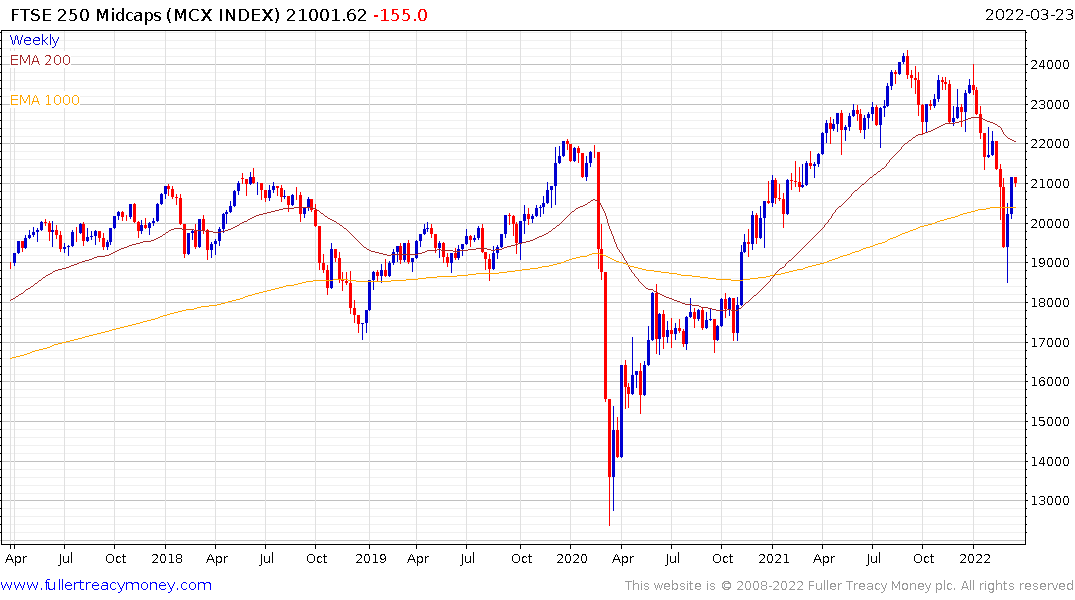U.K. Treasury to Raise $36 Billion More Tax Despite Sunak's Cuts
This article from Bloomberg may be of interest to subscribers. Here is a section:
The U.K. Treasury will pocket about 27 billion pounds ($36 billion) more a year in revenue than previously forecast despite eye-catching tax cuts on pay announced in its Spring economic statement on Wednesday.
The figures, buried in documents from the Treasury and Office for Budget Responsibility, leave Chancellor of the Exchequer Rishi Sunak presiding over the highest tax burden since Clement Attlee’s Labour government in 1949.
The record gave lobby groups across the political spectrum ammunition to criticise Sunak’s handling of the public finances at a time when households are facing their biggest cost-of-living squeeze in at least three decades.
“The Treasury is taking with one hand to give away with the other,” said John O’Connell, chief executive officer of the TaxPayers’ Alliance, a consumer pressure group. “Cutting income tax down the line will be easily offset by the upcoming national insurance hike and freezing income tax thresholds, leaving taxpayers out of pocket overall.”
In his statement to Parliament, Sunak increased the payroll tax threshold at a cost of 6 billion pounds reduced the basic rate of income tax to 19% from 20%, handing households 5 billion pounds from the 2024-25 fiscal year.
Despite the giveaways, Sunak will raise 7 billion pounds more a year from taxes on wages than previously expected, the OBR said. The independent budget watchdog also assumes solid growth in corporate profits, which will generate an extra 6 billion pounds a year on average compared with October.
Inflation gives cover to governments to look like they are cutting taxes while in fact increasing them. If the tax bands are held steady and inflation rises more people fall into the higher brackets as wages play catchup. The fact wages don’t quite keep up with inflation means consumers come out worse off.
This is all too predictable. The vast debts accrued during the pandemic need to be managed. The cost of servicing debts is ramping higher with bond yields. Governments have no choice but to demand more from the economy to cover the shortfall.

The UK is better positioned in that regard than most developed markets with a median duration on its debt of more than a decade. That’s even when the effect of the Bank of England’s purchase program is incorporated. The fact the government feels the need to tighten fiscal policy should be a warning that other countries will need to be even more restrictive.


The Bank of England has raised rates three times since December to 0.75%. Inflation is running at 6% and is expected to peak later this year at 8%. The high headline number is UK Gilts are pausing in the region of the 2018 peaks. That’s one of the primary reasons home prices continue to rise. If inflation is outstripping mortgage rate, the savings are passed on to borrowers for as long as the condition persists.

The FTSE-250 Index rebounded impressively from the region of the 1000-day MA and is now at the first area of potential resistance. It will need to hold the 20000 level on any pullback to confirm the sustainability of support building.


